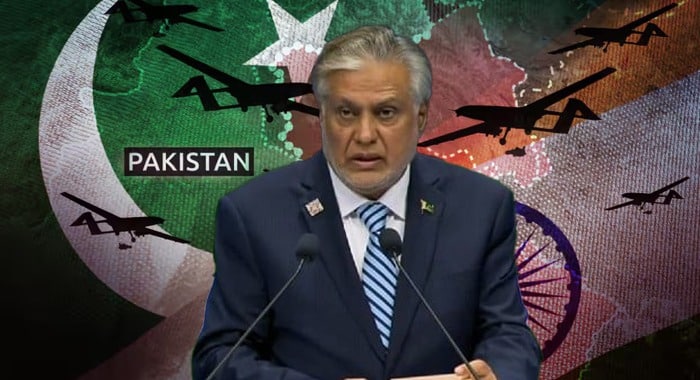Foreign Minister Ishaq Dar has warned that the fragile ceasefire between Pakistan and India could collapse if the upcoming negotiations fail to resolve the long-standing water dispute between the two nuclear-armed neighbours.
In an interview with CNN, Dar cautioned, “If the water issue is not resolved, it would be tantamount to an act of war.” He further stated that the root cause of regional instability remains the unresolved Kashmir dispute, reiterating Pakistan’s longstanding call for the right to self-determination for the people of Jammu and Kashmir.
The warning comes in the wake of heightened tensions that erupted after the April 22, 2025 incident in Pahalgam, following which India launched a wave of accusations against Pakistan. Diplomatic ties between the two countries rapidly deteriorated.
In a series of retaliatory measures, India announced the suspension of the Indus Waters Treaty, imposed restrictions on Pakistan’s diplomatic staff, and cancelled visas of all Pakistanis, including children undergoing medical treatment in India, forcing them to return home.
Pakistan responded by declaring India’s unilateral suspension of the treaty as an act of war. Islamabad subsequently restricted the movement of Indian diplomats, cancelled all Indian visas except for Sikh pilgrims, severed all trade ties, and closed its airspace to Indian flights.
The situation escalated dramatically on the night between February 6 and 7, when India launched missile strikes on six locations across Pakistan, including Kotli, Bahawalpur, Muridke, Bagh, and Muzaffarabad, resulting in the martyrdom of 26 civilians and injuries to 46 others.
In a swift retaliatory response, Pakistan shot down five Indian fighter jets, including three Rafale aircraft. On the night of February 10, India targeted three Pakistani airbases with missile and drone strikes.
In response, Pakistan launched Operation Bunyān Marsūs (Iron Wall) at dawn, destroying key Indian military installations including the Udhampur, Pathankot, and Adampur airbases, BrahMos missile storage facilities, multiple airfields, and the S-400 missile defence system.
Security officials stated that the operation specifically targeted the Indian bases used to launch attacks on Pakistani civilians and mosques.
According to security sources, Operation Bunyān Marsūs commenced at dawn with a barrage of Fatah-1 missiles. Pakistani strikes also destroyed the BrahMos storage site in Beas and decimated the airfield at Pathankot. Additionally, training centres run by Indian Military Intelligence in Rajouri and Nowshera—used to orchestrate terrorist attacks inside Pakistan—were eliminated.
The Foreign Minister’s remarks come amid growing concerns that without a diplomatic breakthrough, the region could once again be pushed to the brink of a full-scale war.





